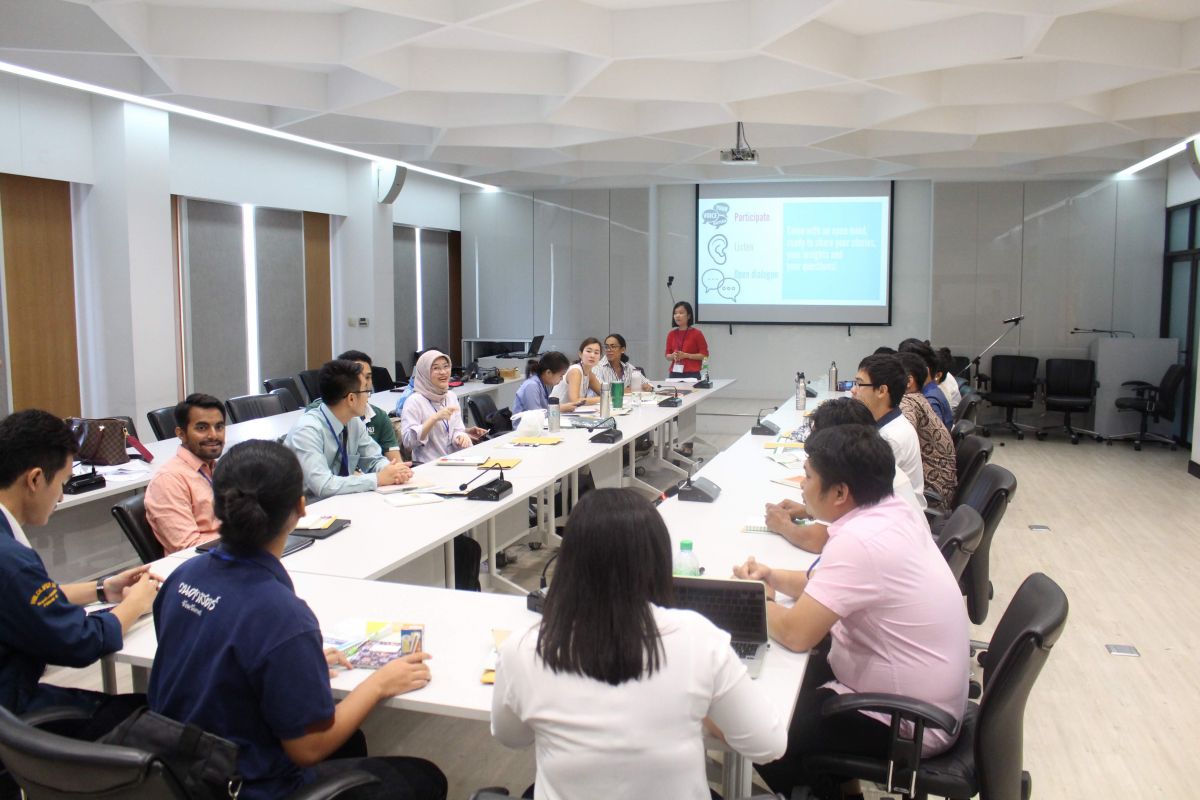Bleak or bright? Youth discuss the future of the planet and what needs to be done

Only one week after youth activists across the world took to the streets to protest against the lack of climate change action, 25 youth leaders from across the Asia-Pacific gathered at The Center for People and Forests to attend the Third Asia-Pacific Forestry Sector Outlook Study (APFSOS III).
The consultation aimed to capture perspectives on the question: “How do you see forests and landscapes in 2050? Is it bright or bleak?”
To tackle this question, youth leaders drew their visions of 2050 on a large canvas. Some believed that the future of the planet was bright. This group filled the canvas with images of urban forests, homes and buildings dressed in flora, politicians and citizens that mobilized to resolve environmental issues. Their interpretation was that of an educated society harnessing global connectivity instead of division to create innovative solutions. These societies lived in harmony with Earth’s ecosystems.
Others were less hopeful. They argued that without immediate action there was little optimism for the future of the planet. They painted an apocalyptic future filled with underground villages, forest fires, canned oxygen, and drowned countries.
The group was clearly divided in their views of the future.

Despite differing views, they seemed to have similar ideas on how to bring about positive change.
“We need innovation and green technology,” they shouted out. “We need a mass mobilization of youth.”
These views signaled an understanding that mass mobilization, strong policies, and radical action are needed to cultivate change, and that young people believe they have the power to influence change. When asked about the ways in which a bright future for the planet can be achieved, they emphasized the importance of accountability and leadership.
“We need world leaders that advocate for the environment,” said one participant. “We need stronger policies. We must stay accountable to our goals and fulfill the promises we make to tackle climate change.
Yurdi Yasmi and Maria Paula Sarigumba of the Food and Agriculture Organization of the United Nations (FAO) facilitated the discussion. During this session, it was clear that they recognized that youth will spearhead this new era of leadership.
“The future is theirs,” said Yurdi Yasmi, a Forestry Officer at FAO. “They will be the leaders in the future. Youth have different perspectives than older generations. By involving them, they actually help us shape the future.”


